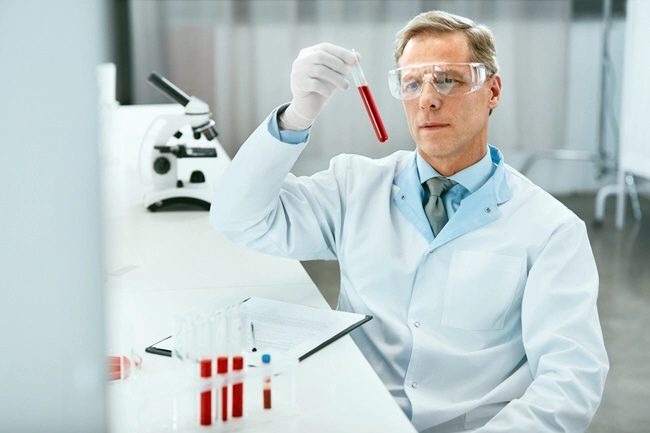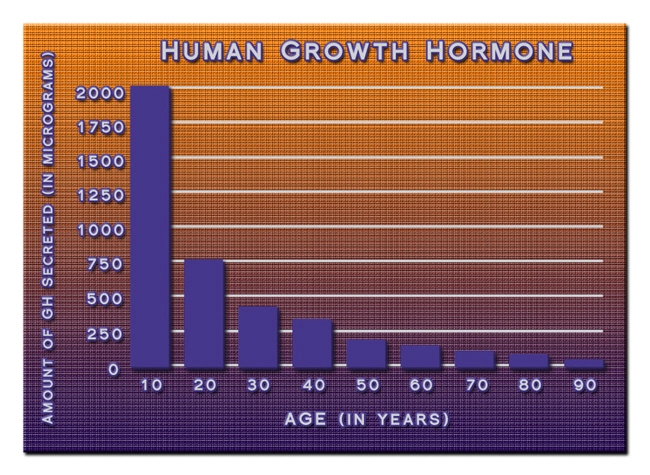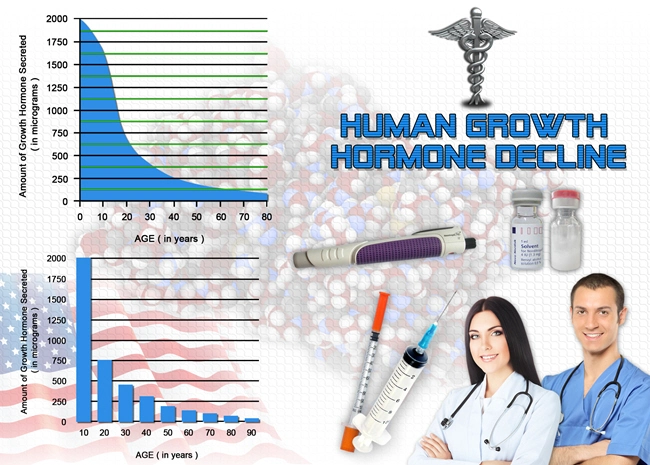
Introduction to Growth Hormone Deficiency
Growth hormone deficiency (GHD) is a medical condition characterized by the inadequate secretion of growth hormone from the pituitary gland. This deficiency can lead to short stature and other developmental issues in children. In the United States, where the prevalence of GHD varies, early diagnosis and treatment are crucial for improving the quality of life of affected children, particularly boys, who may face unique challenges related to growth and development.
Understanding Genotropin
Genotropin is a recombinant human growth hormone (rhGH) that has been approved by the FDA for the treatment of growth failure due to growth hormone deficiency in pediatric patients. As a synthetic version of the naturally occurring growth hormone, Genotropin works by stimulating growth, cell reproduction, and regeneration in children with GHD. Its role in therapy is pivotal, as it helps bridge the gap between the body's needs and its ability to produce growth hormone naturally.
The Mechanism of Action of Genotropin
Genotropin functions by binding to the growth hormone receptors on the surface of cells throughout the body. This interaction triggers a cascade of intracellular signals that promote growth and development. Specifically, it stimulates the liver to produce insulin-like growth factor 1 (IGF-1), which plays a central role in childhood growth. For American males with GHD, the administration of Genotropin can lead to increased height velocity and improved body composition.
Clinical Efficacy and Safety Profile
Clinical studies have demonstrated the efficacy of Genotropin in increasing growth rates in children with GHD. In trials focusing on American males, those treated with Genotropin showed significant improvements in height compared to untreated controls. The safety profile of Genotropin is well-established, with common side effects being mild and transient, such as injection site reactions and headaches. Long-term monitoring is recommended to manage any potential risks and ensure the treatment's continued effectiveness.
Administration and Monitoring
Genotropin is administered via subcutaneous injection, typically on a daily basis. The dosage is tailored to the individual needs of the patient, taking into account factors such as age, weight, and the severity of the deficiency. Regular monitoring of growth parameters, IGF-1 levels, and overall health is essential to adjust the treatment plan as needed and to track the progress of the therapy.
Impact on Quality of Life
For American boys with GHD, the use of Genotropin can have a profound impact on their quality of life. Beyond the physical benefits of increased height, treatment can enhance self-esteem and social functioning. Boys who might otherwise feel self-conscious about their stature can experience improved confidence and participation in activities with their peers, which is crucial during the formative years of childhood and adolescence.
Challenges and Considerations
While Genotropin offers significant benefits, there are challenges to consider. The cost of treatment can be a barrier for some families, and the need for daily injections may affect adherence. Additionally, the psychological impact of a chronic condition should not be underestimated, and support from healthcare providers and counselors can be invaluable.
Conclusion
Genotropin represents a cornerstone in the management of growth hormone deficiency in pediatric patients, particularly American males. Its ability to promote growth and improve overall well-being is well-documented, making it an essential tool in the hands of endocrinologists. As research continues to evolve, the hope is that Genotropin and similar therapies will become even more accessible and effective, ensuring that every child with GHD has the opportunity to reach their full potential.
In summary, Genotropin's role in the treatment of growth hormone deficiency in American boys is both significant and multifaceted, addressing not only the physical aspects of the condition but also the emotional and social dimensions that are critical to a child's development.
Contact Us Today For A Free Consultation
Dear Patient,
Once you have completing the above contact form, for security purposes and confirmation, please confirm your information by calling us.
Please call now: 1-800-380-5339.
Welcoming You To Our Clinic, Professor Tom Henderson.

- Unveiling the Potential of Genotropin: A Comprehensive Review of Clinical Trials and Outcomes [Last Updated On: February 21st, 2025] [Originally Added On: February 21st, 2025]
- Exploring the Impact of Genotropin on Metabolic Health in American Adult Males [Last Updated On: February 26th, 2025] [Originally Added On: February 26th, 2025]
- Genotropin Improves Lipid Profiles in American Males with Growth Hormone Deficiency [Last Updated On: March 12th, 2025] [Originally Added On: March 12th, 2025]
- Unveiling the Potential of Genotropin in Managing Idiopathic Short Stature in American Males [Last Updated On: March 15th, 2025] [Originally Added On: March 15th, 2025]
- Exploring the Efficacy of Genotropin in Treating Growth Hormone Deficiency Among American Males with Sleep Disorders [Last Updated On: March 16th, 2025] [Originally Added On: March 16th, 2025]
- Exploring the Effects of Genotropin on Lung Function in Growth Hormone Deficient American Males [Last Updated On: March 16th, 2025] [Originally Added On: March 16th, 2025]
- Exploring the Role of Genotropin in Treating Growth Hormone Deficiency and Osteoporosis in American Males [Last Updated On: March 16th, 2025] [Originally Added On: March 16th, 2025]
- Exploring the Impact of Genotropin on Exercise Performance in Growth Hormone Deficient American Males [Last Updated On: March 16th, 2025] [Originally Added On: March 16th, 2025]
- Unlocking the Potential of Genotropin Therapy: Overcoming Psychological Barriers in American Males [Last Updated On: March 16th, 2025] [Originally Added On: March 16th, 2025]
- Exploring the Impact of Genotropin on Bladder Function in American Males with Growth Hormone Deficiency [Last Updated On: March 16th, 2025] [Originally Added On: March 16th, 2025]
- Genotropin Therapy: Transitioning American Males from Pediatric to Adult Care [Last Updated On: March 16th, 2025] [Originally Added On: March 16th, 2025]
- Genotropin: Enhancing Growth and Quality of Life in SGA Children [Last Updated On: March 17th, 2025] [Originally Added On: March 17th, 2025]
- Optimizing Genotropin Therapy Compliance for American Males: Strategies and Support [Last Updated On: March 18th, 2025] [Originally Added On: March 18th, 2025]
- Genotropin: A Breakthrough in Treating Short Bowel Syndrome in American Males [Last Updated On: March 18th, 2025] [Originally Added On: March 18th, 2025]
- Genotropin: Pharmacokinetics, Pharmacodynamics, and Clinical Use in American Males with GHD [Last Updated On: March 18th, 2025] [Originally Added On: March 18th, 2025]
- Genotropin's Impact on Cognitive Function in American Males with Growth Hormone Deficiency [Last Updated On: March 19th, 2025] [Originally Added On: March 19th, 2025]
- Genotropin: Enhancing Vitality in Elderly American Males with Growth Hormone Deficiency [Last Updated On: March 19th, 2025] [Originally Added On: March 19th, 2025]
- Genotropin: Enhancing Growth in American Males with Various Disorders [Last Updated On: March 20th, 2025] [Originally Added On: March 20th, 2025]
- Genotropin's Impact on Cardiovascular Health in American Men with Growth Hormone Deficiency [Last Updated On: March 20th, 2025] [Originally Added On: March 20th, 2025]
- Genotropin: Enhancing Life Quality in American Males with Adult-Onset Growth Hormone Deficiency [Last Updated On: March 21st, 2025] [Originally Added On: March 21st, 2025]
- Genotropin Therapy: Debunking Myths and Clarifying Benefits for American Males [Last Updated On: March 21st, 2025] [Originally Added On: March 21st, 2025]
- Managing Genotropin Side Effects in American Males: Strategies and Tips [Last Updated On: March 21st, 2025] [Originally Added On: March 21st, 2025]
- Genotropin Boosts Immune Function in Growth Hormone Deficient American Males [Last Updated On: March 22nd, 2025] [Originally Added On: March 22nd, 2025]
- Genotropin: Effective GH Therapy for Post-Radiation Growth Hormone Deficiency in Males [Last Updated On: March 22nd, 2025] [Originally Added On: March 22nd, 2025]
- Genotropin: Enhancing Life Quality in American Males with Hypopituitarism [Last Updated On: March 22nd, 2025] [Originally Added On: March 22nd, 2025]
- Genotropin: A Targeted Treatment for Growth Hormone Deficiency in American Males [Last Updated On: March 22nd, 2025] [Originally Added On: March 22nd, 2025]
- Genotropin: Enhancing Sleep Quality in American Men with Growth Hormone Deficiency [Last Updated On: March 22nd, 2025] [Originally Added On: March 22nd, 2025]
- Genotropin Boosts Exercise Capacity in American Men with Growth Hormone Deficiency [Last Updated On: March 23rd, 2025] [Originally Added On: March 23rd, 2025]
- Genotropin's Cost-Effectiveness for American Males with Growth Hormone Deficiency [Last Updated On: March 23rd, 2025] [Originally Added On: March 23rd, 2025]
- Genotropin Therapy: Enhancing Growth and Life Quality in American Males with GHD [Last Updated On: March 23rd, 2025] [Originally Added On: March 23rd, 2025]
- Genotropin: Enhancing Growth and Quality of Life in Childhood Cancer Survivors with GHD [Last Updated On: March 23rd, 2025] [Originally Added On: March 23rd, 2025]
- Genotropin's Role in Managing Growth Hormone Deficiency in HIV-Positive American Males [Last Updated On: March 23rd, 2025] [Originally Added On: March 23rd, 2025]
- Genotropin: Enhancing Growth in American Males with Craniopharyngioma-Induced GHD [Last Updated On: March 23rd, 2025] [Originally Added On: March 23rd, 2025]
- Genotropin Therapy: Enhancing Growth in American Boys with Hormone Deficiency [Last Updated On: March 23rd, 2025] [Originally Added On: March 23rd, 2025]
- Genotropin: Enhancing Recovery from TBI-Induced Growth Hormone Deficiency in American Males [Last Updated On: March 24th, 2025] [Originally Added On: March 24th, 2025]
- Genotropin: Enhancing Growth in American Males with Sickle Cell Disease and GHD [Last Updated On: March 24th, 2025] [Originally Added On: March 24th, 2025]
- Genotropin's Impact on Vision in American Men with Growth Hormone Deficiency: A Review [Last Updated On: March 25th, 2025] [Originally Added On: March 25th, 2025]
- Genotropin's Impact on Quality of Life in American Males with Turner Syndrome [Last Updated On: March 25th, 2025] [Originally Added On: March 25th, 2025]
- Genotropin Enhances Skin Health in American Men with Growth Hormone Deficiency [Last Updated On: March 25th, 2025] [Originally Added On: March 25th, 2025]
- Strategies to Boost Genotropin Adherence in American Adolescent Males [Last Updated On: March 25th, 2025] [Originally Added On: March 25th, 2025]
- Genotropin's Impact on Reproductive Health in American Males with GHD [Last Updated On: March 25th, 2025] [Originally Added On: March 25th, 2025]
- Genotropin's Efficacy and Safety in Diabetic American Males with Growth Hormone Deficiency [Last Updated On: March 25th, 2025] [Originally Added On: March 25th, 2025]
- Genotropin's Impact on Dental Health in American Males with Growth Hormone Deficiency [Last Updated On: March 25th, 2025] [Originally Added On: March 25th, 2025]
- Genotropin Use in American Males with Growth Hormone Deficiency and Asthma: A Tailored Approach [Last Updated On: March 26th, 2025] [Originally Added On: March 26th, 2025]
- Genotropin's Role in Managing Growth Hormone Deficiency in American Males with Down Syndrome [Last Updated On: March 26th, 2025] [Originally Added On: March 26th, 2025]
- Genotropin: Enhancing Life for Adults with Growth Hormone Deficiency [Last Updated On: March 26th, 2025] [Originally Added On: March 26th, 2025]
- Genotropin's Impact on Emotional Well-Being in American Boys with Growth Hormone Deficiency [Last Updated On: March 26th, 2025] [Originally Added On: March 26th, 2025]
- Genotropin's Role in Treating Growth Hormone Deficiency and Rheumatoid Arthritis in American Males [Last Updated On: March 26th, 2025] [Originally Added On: March 26th, 2025]
- Genotropin: Enhancing Growth and Cognitive Function in American Males with GHD and ADHD [Last Updated On: March 26th, 2025] [Originally Added On: March 26th, 2025]
- Genotropin: Enhancing Quality of Life in Males with GHD and Pituitary Tumors [Last Updated On: March 26th, 2025] [Originally Added On: March 26th, 2025]
- Genotropin Therapy Enhances Growth in American Males with Epilepsy and GHD [Last Updated On: March 27th, 2025] [Originally Added On: March 27th, 2025]
- Genotropin's Impact on Kidney Function in American Males with Growth Hormone Deficiency [Last Updated On: March 27th, 2025] [Originally Added On: March 27th, 2025]
- Genotropin's Role in Managing Growth Hormone Deficiency in Cystic Fibrosis Patients [Last Updated On: March 27th, 2025] [Originally Added On: March 27th, 2025]
- Managing Growth Hormone Deficiency Transition with Genotropin: Strategies for Adult Care [Last Updated On: March 27th, 2025] [Originally Added On: March 27th, 2025]
- Genotropin Therapy: Personalized Growth Hormone Treatment for American Males [Last Updated On: March 27th, 2025] [Originally Added On: March 27th, 2025]
- Genotropin's Impact on Hearing in American Boys with Growth Hormone Deficiency [Last Updated On: March 28th, 2025] [Originally Added On: March 28th, 2025]
- Optimizing Genotropin Therapy with Tailored Nutrition for American Males with GHD [Last Updated On: March 28th, 2025] [Originally Added On: March 28th, 2025]
- Genotropin's Role in Treating GHD in American Males with ASD: Efficacy and Safety [Last Updated On: March 29th, 2025] [Originally Added On: March 29th, 2025]
- Genotropin: Enhancing Growth and Well-being in GHD with Thyroid Disorders [Last Updated On: March 30th, 2025] [Originally Added On: March 30th, 2025]
- Genotropin Enhances Hair Growth in American Men with Growth Hormone Deficiency [Last Updated On: March 30th, 2025] [Originally Added On: March 30th, 2025]
- Overcoming Psychological Barriers to Genotropin Therapy in American Males [Last Updated On: March 30th, 2025] [Originally Added On: March 30th, 2025]
- Genotropin Therapy Essentials for American Males with Growth Hormone Deficiency [Last Updated On: April 1st, 2025] [Originally Added On: April 1st, 2025]
- Genotropin: A Promising Treatment for GHD and Obesity in American Males [Last Updated On: April 3rd, 2025] [Originally Added On: April 3rd, 2025]
- Genotropin's Role in Treating GHD and CFS in American Males: A Comprehensive Overview [Last Updated On: April 4th, 2025] [Originally Added On: April 4th, 2025]
- Genotropin Enhances Lung Function in American Males with Growth Hormone Deficiency [Last Updated On: April 5th, 2025] [Originally Added On: April 5th, 2025]
- Genotropin's Impact on Liver Function in American Men with Growth Hormone Deficiency [Last Updated On: April 7th, 2025] [Originally Added On: April 7th, 2025]
- Genotropin's Efficacy in Treating Fibromyalgia and GHD in American Males [Last Updated On: April 8th, 2025] [Originally Added On: April 8th, 2025]
- Genotropin's Role in Managing Osteoporosis in American Males with Growth Hormone Deficiency [Last Updated On: April 9th, 2025] [Originally Added On: April 9th, 2025]
- Genotropin Therapy: Enhancing Communication for American Males' Treatment Success [Last Updated On: April 9th, 2025] [Originally Added On: April 9th, 2025]
- Genotropin: A Dual Treatment for Growth Hormone Deficiency and Anemia in American Males [Last Updated On: April 9th, 2025] [Originally Added On: April 9th, 2025]
- Genotropin's Role in Managing Growth Hormone Deficiency in American Males with MS [Last Updated On: April 10th, 2025] [Originally Added On: April 10th, 2025]
- Genotropin Therapy for GHD in Males: Ethical Considerations and Autonomy [Last Updated On: April 11th, 2025] [Originally Added On: April 11th, 2025]
- Genotropin: Managing Growth Hormone Deficiency in Hypertensive American Males [Last Updated On: April 12th, 2025] [Originally Added On: April 12th, 2025]
- Genotropin Enhances Joint Health in American Men with Growth Hormone Deficiency [Last Updated On: April 13th, 2025] [Originally Added On: April 13th, 2025]
- Overcoming Cultural Barriers to Genotropin Therapy in American Males [Last Updated On: April 15th, 2025] [Originally Added On: April 15th, 2025]
- Genotropin's Impact on Digestive Health in American Males with GHD [Last Updated On: April 15th, 2025] [Originally Added On: April 15th, 2025]
- Genotropin: Treating Growth Hormone Deficiency and Sleep Disorders in American Males [Last Updated On: April 15th, 2025] [Originally Added On: April 15th, 2025]
- Genotropin's Impact on GHD and Depression in American Males: Benefits and Considerations [Last Updated On: April 16th, 2025] [Originally Added On: April 16th, 2025]
- Genotropin: Effective GHD Treatment for American Males with Allergies [Last Updated On: April 17th, 2025] [Originally Added On: April 17th, 2025]
- Genotropin's Dual Efficacy in Treating GHD and Anxiety in American Males [Last Updated On: April 17th, 2025] [Originally Added On: April 17th, 2025]








